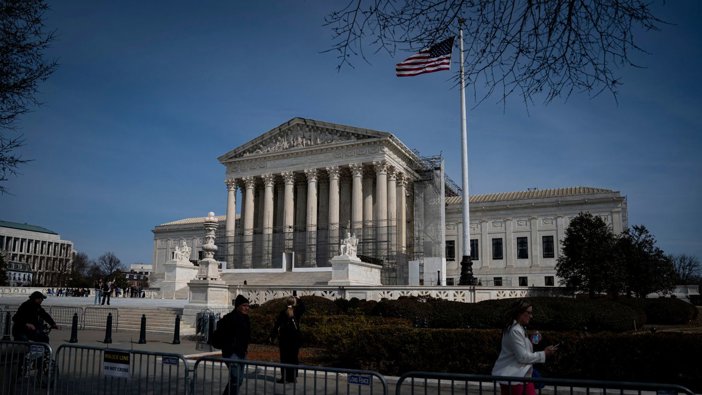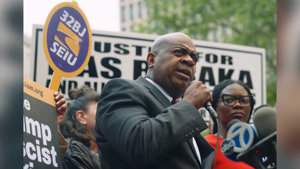
Supreme Court Blocks Trump Deportation Effort
The Supreme Court halts Trump’s effort to deport Venezuelans under the Alien Enemies Act, citing due process violations.
High Court Sends Immigration Case Back to Lower Court
The U.S. Supreme Court on Friday blocked President Donald Trump’s effort to deport a group of Venezuelan migrants under the Alien Enemies Act (AEA), marking a setback for the administration’s broader immigration agenda. The ruling was delivered in response to an appeal from the migrants, who argued they were not given sufficient notice to legally challenge their deportation.
The justices concluded that the roughly 24-hour notice given to the detainees prior to their removal was constitutionally inadequate. “Notice roughly 24 hours before removal, devoid of information about how to exercise due process rights... does not pass muster,” the Court stated in its opinion. The matter was remanded to the Fifth Circuit Court of Appeals for further proceedings. Justices Clarence Thomas and Samuel Alito dissented.
The Court did not rule on the legality of the AEA itself, a 1798 statute allowing expedited removal of non-citizens from nations considered hostile to the United States. Instead, it focused narrowly on the issue of procedural fairness. “To be clear, we decide today only that the detainees are entitled to more notice than was given on April 18,” the Court noted.
The ruling follows a prior decision in which the Court lifted a lower court’s order barring use of the AEA but emphasized that deportations must still follow proper notification protocols. In this latest case, the Court again intervened to halt removals of migrants in Texas, citing due process deficiencies.
Trump Reacts as Court Battles Mount
President Trump condemned the ruling on his Truth Social platform, writing, “THE SUPREME COURT WON’T ALLOW US TO GET CRIMINALS OUT OF OUR COUNTRY!” He later elaborated that the decision would delay deportation of individuals he described as “murderers, drug dealers, gang members, and even those who are mentally insane.”
“This is a bad and dangerous day for America,” Trump wrote. He accused the Court of undermining his authority to fulfill the duties of his office, contrasting the ruling with what he called the lax immigration enforcement under President Joe Biden. Trump’s posts reflect growing frustration within his administration over judicial roadblocks to his immigration agenda.
The Supreme Court’s ruling came just one day after it heard arguments in another contentious case involving birthright citizenship, highlighting ongoing legal resistance to Trump’s immigration executive actions. There are at least five additional emergency appeals pending that challenge various aspects of Trump’s policies, including temporary protected status for Venezuelans and federal agency personnel rules.
Meanwhile, separate court proceedings are drawing further scrutiny to immigration enforcement practices. On Friday, U.S. District Judge Paula Xinis sharply criticized Trump administration lawyers over the mistaken deportation of Salvadoran national Kilmar Armando Abrego Garcia. In a heated hearing, Xinis called the deportation “unlawful” and rejected government attempts to invoke state secrets to withhold information. “He was removed in error,” she stated. “There was a notice of withholding of removal.”
With legal challenges multiplying, the administration faces continued resistance in its efforts to accelerate removals and reshape immigration law. The Court’s latest ruling underscores the constitutional limits imposed on executive authority and the enduring importance of due process — even in politically charged cases involving national security and immigration policy.






